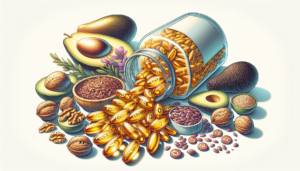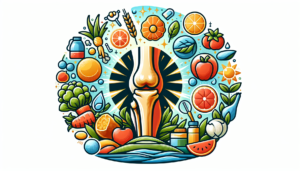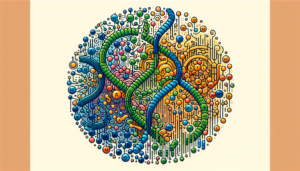Signs of a Heart Attack You Should Never Ignore
Signs of a Heart Attack You Should Never Ignore
Recognizing the early signs of a heart attack is crucial for survival and can dramatically improve medical outcomes. Heart attacks, or myocardial infarctions, occur when blood flow to a part of the heart is obstructed, often due to blockage by plaque or a blood clot. Understanding the symptoms can empower individuals to seek help promptly. Below are key signs of a heart attack to never ignore.
1. Chest Pain or Discomfort
The most well-known and classic symptom of a heart attack is chest pain or discomfort. This sensation may manifest as:
- A feeling of pressure or tightness, often described as an elephant sitting on the chest.
- A squeezing sensation that can vary in intensity.
- Radiation of pain from the chest to the arms (especially the left arm), neck, jaw, or back. This is particularly alarming if the pain radiates outward.
2. Shortness of Breath
Shortness of breath can accompany chest pain but may also occur independently. This symptom often presents itself during physical exertion but can also happen while at rest. Some may describe it as feeling winded without exertion. It’s crucial to recognize that this symptom can appear several minutes before chest pain.
3. Sweating
Sudden and excessive sweating can be a warning sign of a heart attack. Many experience what is known as "cold sweat," characterized by:
- Clamminess in the skin.
- Profuse sweating when the person isn’t engaged in physical activity.
- This symptom may accompanied by a sense of anxiety and impending doom.
4. Nausea or Light-headedness
Feeling nauseous or light-headed, sometimes accompanied by vomiting, can be signals of a heart attack, especially in women. This symptom might mimic common gastrointestinal issues, but if it occurs alongside other classic symptoms, it should be taken seriously.
5. Fatigue
Unexplained fatigue or weakness can be an early warning sign of an impending heart attack, especially in women. This fatigue can last days or even weeks prior to the actual heart attack, characterized by:
- Feeling unusually tired without a specific explanation.
- An inability to perform routine tasks without significant exertion.
6. Pain in Other Areas of the Body
While chest pain is the hallmark of a heart attack, discomfort can also arise in various unexpected locations:
- Arm Pain: Particularly the left arm, but can also be felt in both arms.
- Jaw and Neck Pain: Stiffness or ache in the jaw or neck is common, especially in women.
- Back Pain: Some experience a sudden onset of pain in the upper or lower back.
7. Heart Palpitations
Feelings of rapid heartbeats, fluttering in the chest, or irregular heart rate can signal that the heart is under stress. An individual may describe their heart as "racing" or "skipping beats." This can occur during a heart attack and should prompt immediate attention.
8. Indigestion or Heartburn
While not universally experienced during a heart attack, some may confuse heart attack symptoms with indigestion, heartburn, or severe abdominal pain. A strange feeling of fullness, heartburn, or indigestion that does not dissipate may warrant further investigation, especially if combined with other symptoms.
9. Anxiety or a Sense of Doom
Many people report experiencing an intense feeling of anxiety or an overwhelming sense of impending doom just before a heart attack. This psychological symptom can feel similar to a panic attack and may lead some individuals to dismiss their physical symptoms since they focus on their heightened anxiety.
10. Risk Factors to Consider
Several risk factors contribute to the likelihood of a heart attack. It’s essential to understand these to better appreciate the urgency of symptoms:
- Age: Risk increases with age, particularly for men over 45 and women over 55.
- Family History: A family history of heart disease heightens the risk.
- Lifestyle Factors: Sedentary lifestyle, smoking, poor diet, and excessive alcohol consumption are significant contributors.
- Medical Conditions: Hypertension, high cholesterol, and diabetes significantly elevate heart attack risks.
11. Women and Heart Attack Symptoms
It’s critical to note that women may experience heart attack symptoms differently than men. Women often present with atypical symptoms such as:
- Shortness of breath
- Nausea
- Back or jaw pain
- Fatigue
- Often these symptoms appear without the typical chest pain.
This discrepancy makes it crucial for women to be vigilant and aware of their bodies.
12. Timing of Symptoms
Heart attack symptoms can vary in duration. Some people may experience symptoms for a few minutes and then feel better. Others might have prolonged symptoms lasting hours. The time of the onset should be communicated accurately to medical professionals, as they need to understand the timeline to provide appropriate care.
13. Importance of Immediate Action
If any combination of these symptoms occurs, it is imperative to act immediately. Here are the steps to take:
- Call Emergency Services: Always prioritize calling 911 or your local emergency number.
- Chew Aspirin: If you are not allergic, chewing an aspirin (325 mg) can help prevent further clot formation while waiting for emergency services.
- Do Not Drive Yourself: If you suspect a heart attack, do not drive yourself to the hospital. This can delay treatment.
14. Differentiating Between Heart Attack and Other Conditions
It can be challenging to discern heart attack symptoms from those of other medical conditions like anxiety attacks, esophageal spasms, or even flu-like symptoms. Key differentiators usually lie in the severity, duration, and accompanying signs (sweating, radiating pain), making it imperative to err on the side of caution and seek medical help.
15. Educating Yourself and Others
Staying informed about heart attack signs can potentially save lives. Engaging in regular health check-ups, discussing family medical history with healthcare providers, and educating peers can promote timely responses to heart attack symptoms.
16. Conclusion: Prioritize Your Heart Health
Listening to your body and being aware of the signs of a heart attack can be life-saving. Regular check-ups, a healthy lifestyle, and immediate action in response to concerning symptoms can dramatically increase chances of survival in the event of a heart attack. Always consult with healthcare professionals regarding personal risk factors and preventive measures tailored to individual health profiles.








